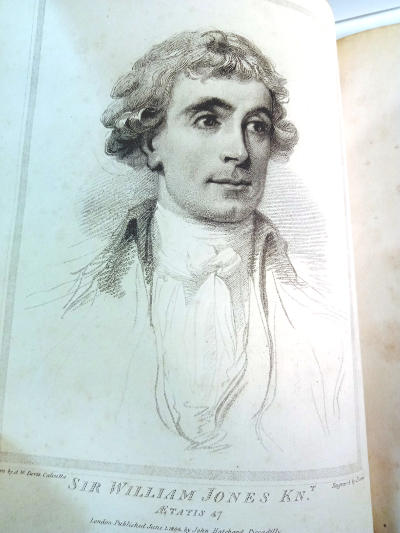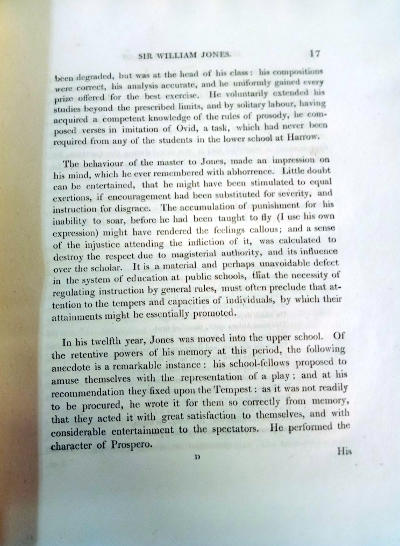About William Jones (from Wikipedia):
Sir William Jones FRS FRSE (28 September 1746 – 27 April 1794) was an Anglo-Welsh philologist, a puisne judge on the Supreme Court of Judicature at Fort William in Bengal, and a scholar of ancient India, particularly known for his proposition of the existence of a relationship among European and Indo-Aryan languages, which he coined as Indo-European.
Jones is also credited for establishing the Asiatic Society of Bengal in the year 1784.
Jones was a radical political thinker, a friend of American independence. His work, The principles of government; in a dialogue between a scholar and a peasant (1783), was the subject of a trial for seditious libel after it was reprinted by his brother-in-law William Shipley.
In the Subcontinent he was entranced by Indian culture, an as-yet untouched field in European scholarship, and on 15 January 1784 he founded the Asiatic Society in Calcutta and started a journal called Asiatick Researches. He studied the Vedas with Rāmalocana, a pandit teaching at the Nadiya Hindu university, becoming a proficient Sanskritist. Jones kept up a ten-year correspondence on the topic of jyotisa or Hindu astronomy with fellow orientalist Samuel Davis. He learnt the ancient concept of Hindu Laws from Pandit Jagannath Tarka Panchanan.
Over the next ten years he would produce a flood of works on India, launching the modern study of the subcontinent in virtually every social science. He also wrote on the local laws, music, literature, botany, and geography, and made the first English translations of several important works of Indian literature.
Sir William Jones sometimes also went by the nom de plume Youns Uksfardi (یونس اوکسفردی, “Jones of Oxford”). This pen name can be seen on the inner front cover of his Persian Grammar published in 1771 (and in subsequent editions).
He died in Calcutta on 27 April 1794 at the age of 47 and is buried in South Park Street Cemetery.





